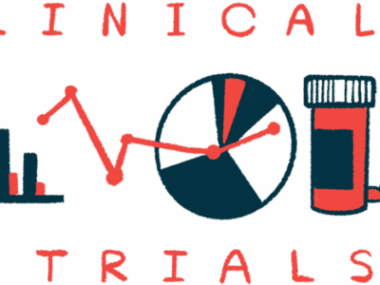Chemomab, FDA align on key aspects of nebokitug development
Company seeks partner for Phase 3 trial of candidate therapy for PSC
Written by |

Chemomab Therapeutics has aligned with U.S. regulators on several aspects of the late-stage development of nebokitug, its candidate therapy for primary sclerosing cholangitis (PSC), as the company continues to search for a strategic partner for an upcoming Phase 3 trial.
In previous conversations with the U.S. Food and Drug Administration (FDA), it was agreed that a single Phase 3 clinical trial focused on PSC progression-related outcomes would be sufficient to support a future application for approval, should results be positive.
“We submitted our nebokitug Phase 3 protocol to the FDA and look forward to receiving their response soon,” Adi Mor, PhD, Chemomab’s co-founder, CEO, and chief scientific officer, said in a company press release announcing financial results and corporate updates for the second quarter of this year (April to June). “We are also engaging in a similar process with the European Medicines Agency, as we plan for a global Phase 3 trial that will include many sites in the [European Union], and anticipate that the Phase 3 protocol agreed with the FDA would also support regulatory approvals in Europe.”
Chemomab receives patents from Russia, China
The company is continuing preparations for the upcoming Phase 3 trial, including seeking a partner to execute the study.
“Our goal is to secure the right partner to optimize development resources, accelerate the Phase 3 launch, and maximize the commercial potential of nebokitug as the first approved disease-modifying therapy for this devastating disease with enormous unmet medical need,” Mor said.
The company also received patents covering the use of nebokitug for liver diseases, including PSC, in Russia and China. That’s in addition to patent protections already gained in the U.S., Europe, Japan, and other territories.
“Enlarging the scope of our patent protections is relevant for partnerships, and we were pleased to report adding to our existing large and comprehensive intellectual property portfolio with new nebokitug patents in China and Russia, two significant territories for future commercialization,” Mor said.
Nebokitug reduced biomarkers of liver disease in Phase 2 trial
PSC is an autoimmune form of cholangitis marked by chronic inflammation of the bile ducts, the tubes that transport the digestive fluid bile from the liver to the intestines. Inflammation can lead to bile duct sclerosis, or scarring, and make it more difficult for bile to move through these ducts, causing bile accumulation to toxic levels in the liver, potentially causing further damage
Nebokitug (formerly known as CM-101), works by blocking CCL24, a signaling protein involved in PSC-related inflammation and fibrosis that attracts and activates certain immune cells.
Chemomab expects the experimental therapy, delivered via infusion into the bloodstream, will ease inflammation, fibrosis, and symptoms in people with PSC, for whom there are no approved treatments to date.
In the previous Phase 2 SPRING clinical trial (NCT04595825), treatment with nebokitug once every three weeks for 15 weeks (nearly four months) reduced biomarkers of liver disease. During a 33-week (about 7.5-month) open-label extension period, participants continued to see benefits. These included reduced clinical signs of disease progression.
Over the past few months, the company has presented more details from SPRING at scientific meetings. New results reflect the medication’s ability to neutralize CCL24 and reduce levels of proteins involved in immune cell recruitment, inflammation, and fibrosis in a dose-dependent manner.
According to Mor, these presentations “further [raise] awareness of nebokitug’s demonstrated potential as a groundbreaking treatment for PSC.”
Animal toxicology testing to be conducted in parallel with Phase 3 trial
According to a previous company press release, the upcoming Phase 3 trial, if greenlit by regulators, is expected to test nebokitug against a placebo in up to 350 people with PSC, mostly those with moderate or advanced disease.
Participants will receive an infusion of either 20 mg/kg of nebokitug or a placebo, once every three weeks. The main goal will be to assess whether the medication can delay disease progression and related clinical events.
“We look forward to continuing to work closely with the FDA as we finalize the details of the Phase 3 development program,” Mor said.
In June, Chemomab and the FDA reached alignment on two key aspects of nebokitug’s late-stage development. The U.S. agency agreed to the company’s proposed chemistry, manufacturing, and controls strategy, which covers quality and safety during nebokitug’s production process for the upcoming Phase 3 study and eventual commercialization.
We look forward to continuing to work closely with the FDA as we finalize the details of the Phase 3 development program.
Chemomab will also be able to conduct additional, mandatory animal toxicology testing in parallel with the Phase 3 trial. Data from the testing will be included in a potential application seeking the therapy’s approval, .
This alignment “represents a favorable outcome for Chemomab and supports the timely advancement of the program,” the press release stated.
Strategic partnerships could also help push nebokitug development forward. The company is in conversations with several potential collaborators about future plans.
“In parallel to the ongoing activities, we are assessing a number of near-term value-creating initiatives with the potential to accelerate the Phase 3 program and strengthen its probability of success,” Mor said. “We anticipate sharing more information about these activities in the coming months.”




